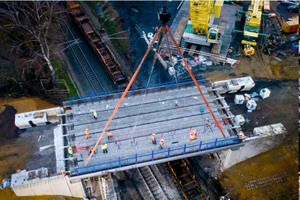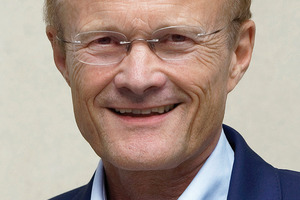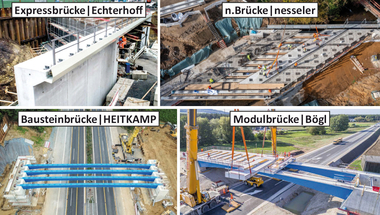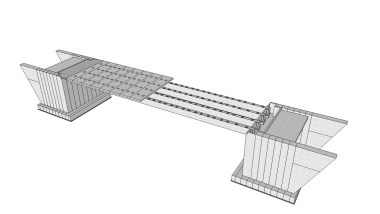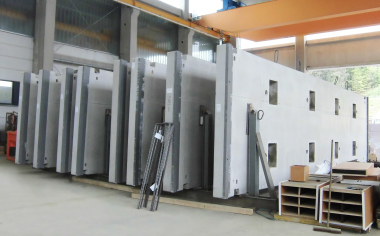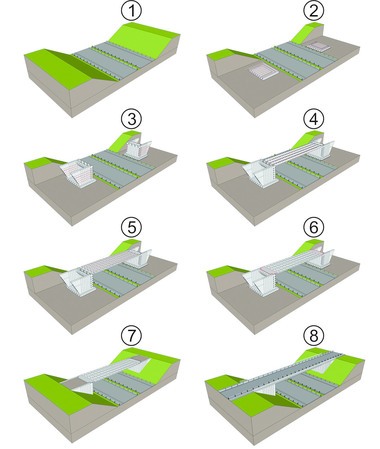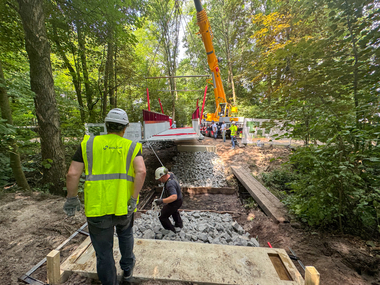Modular bridges for renewal of transport infrastructure
High performance capability of transport infrastructure at a time of ever-increasing passenger and freight transport is of critical significance for Germany as a business location. Numerous construction sites on the federal highways and the resulting congestion have deepened public discussion on infrastructure. The supposed problem of older bridges is not their method of construction, but the enormous growth in traffic volume and the age of these structures. The major part of the 40 to 60 years old bridges in Germany must in the coming years in the short term be either reinforced or replaced without interrupting traffic.
In order to speed up the replacement of bridges without interrupting traffic, modular construction systems of reinforced concrete and prestressed concrete offer themselves since they enable extremely short construction times (< 100 days) and shut-off times (≤ 2 days) for traffic. The short construction times, at the same time, save large amounts of CO2 caused by congestion.
In Germany, modular construction methods – as opposed to other European countries and in North America are – have so far been used on a restricted basis only. However, the further development of these construction methods is currently being promoted more strongly by the German highway company and a number of road construction administrations. Successfully implemented and pace-setting projects are, for example, the Baustein bridge over the A46 federal highway in Hagen, completed in 2018 by Heitkamp Bauholding GmbH, the Express bridges built by Echterhoff and the skewed highway bridge of nesseler bau GmbH in 2022. All of these bridges were constructed in less than 100 days and can serve as models for modular bridges.
The presentation reports on experiences gained in pilot bridges with spans of up to 50 m of reinforced-concrete and prestressed-concrete elements completed in Germany. In addition to basic construction principles for superstructures and substructures, details on the design of joints and force-locked connections are presented.

